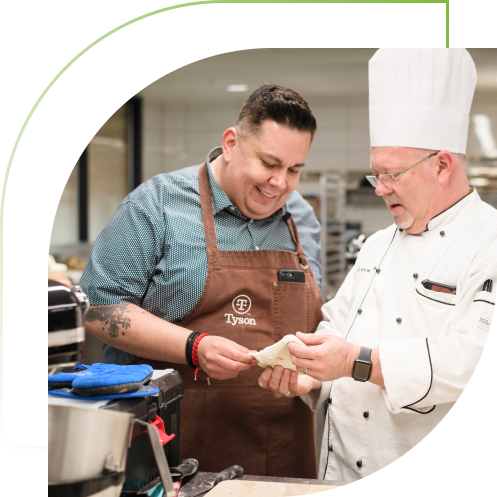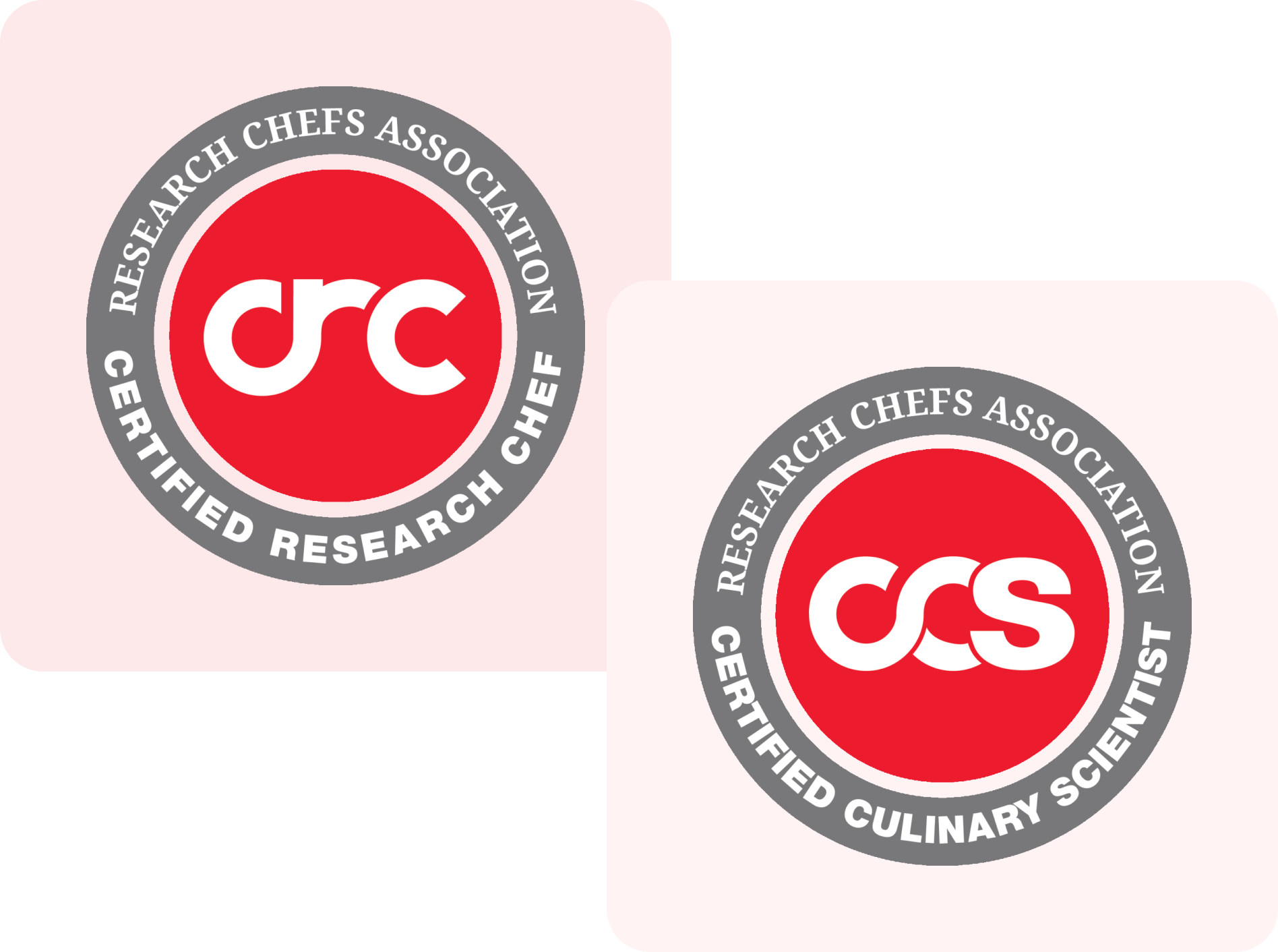Continuing EducationProfessional development through continuing education is key to RCA’s mission of supporting practitioners of Culinology® throughout their career. |
 |
||
|
Earn Contact Hours at the RCA Conference and Beyond
|
|||
Regional Events & WebinarsIn an effort to provide members and the food R&D industry with relevant, fun and educational offerings year-round, RCA offers regional events and webinars. |
_15349023.png) |
Certification
|
RCA certifies qualified professionals through the Certified Research Chef (CRC®) and Certified Culinary Scientist (CCS®) programs.In today’s complex food industry, companies are seeking employees who can offer that competitive edge through experience and proven competencies in both culinary arts and food science. Through our certification program, RCA provides the food industry with today’s most valuable, sought-after product developers who excel in the practice of Culinology® — the blending of culinary arts and food science. |
Scholarship
|
RCA and the Culinology Scholarship Foundation promote education through scholarship programs.Valuing the importance of education, the Culinology Scholarship Foundation strives to provide financial assistance in the form of scholarships to assist qualified students and professionals pursuing higher learning and continuing education opportunities in Culinology, culinary arts and food science. |
Culinology Workshops
|
RCA members receive the best rates for Culinology Workshops presented by Golden Food Science.Online classes presented by Golden Food Science are designed to futher your expertise and prepare you for the Certified Research Chef (CRC) and Certified Culinary Scientist (CCS) exams. RCA members receive a sizeable discount on course registration fees. |
Professional Education
|
RCA has partnered with The Butter Book to create a new member benefitThe Butter Book is an award-winning platform delivering the most comprehensive, skill-based, and personalized pastry and baking education available. Designed for chefs, food scientists, students, and foodservice operations, The Butter Book features adaptive and interactive resources that support the practitioners of Culinology with hands-on skill mastery and long-term professional growth. RCA members can unlock access to the industry’s premier digital baking and pastry learning platform at a special rate of $1,999/year (includes up to 5 seats per account).
|
